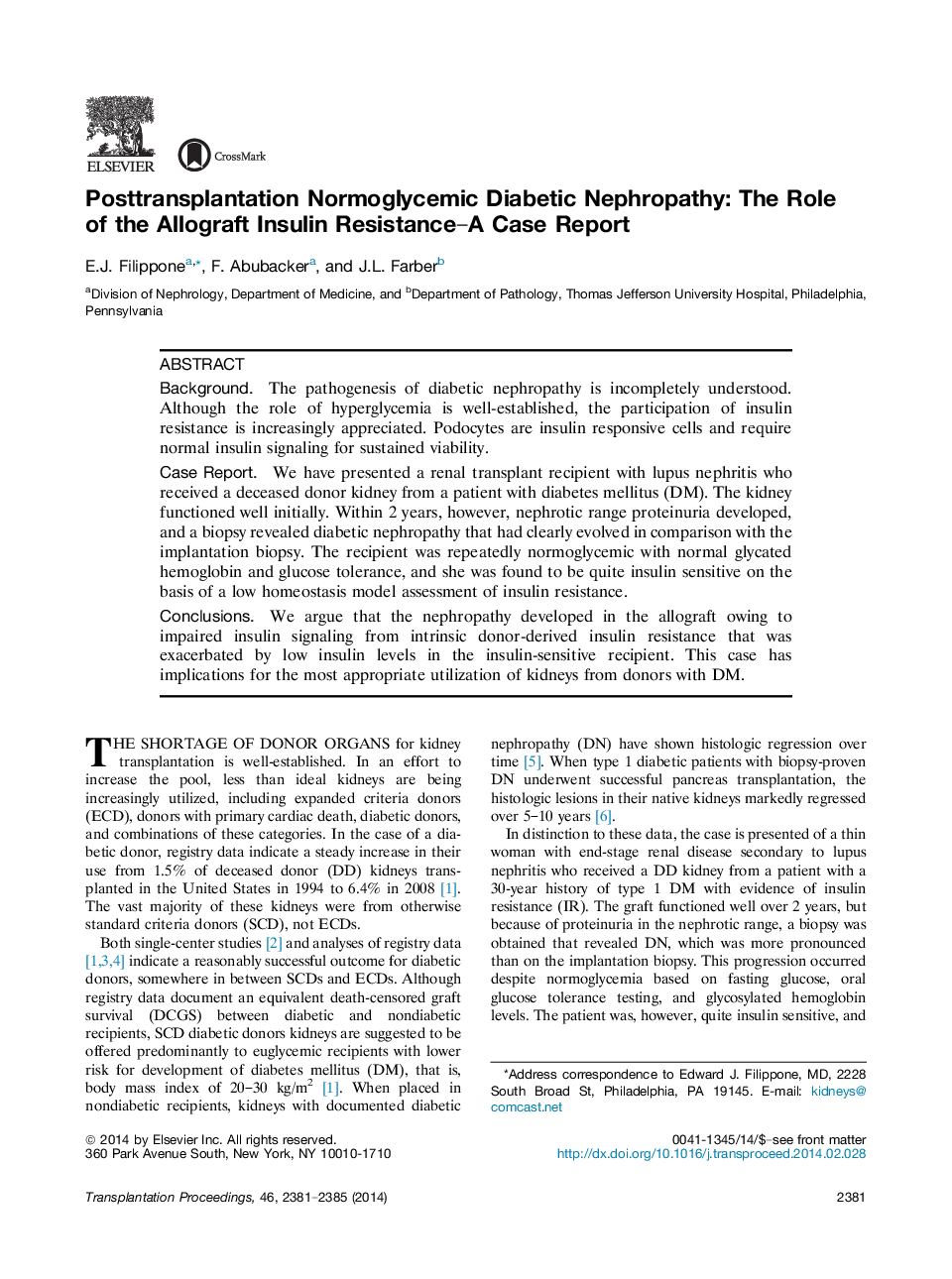| Article ID | Journal | Published Year | Pages | File Type |
|---|---|---|---|---|
| 4256462 | Transplantation Proceedings | 2014 | 5 Pages |
BackgroundThe pathogenesis of diabetic nephropathy is incompletely understood. Although the role of hyperglycemia is well-established, the participation of insulin resistance is increasingly appreciated. Podocytes are insulin responsive cells and require normal insulin signaling for sustained viability.Case ReportWe have presented a renal transplant recipient with lupus nephritis who received a deceased donor kidney from a patient with diabetes mellitus (DM). The kidney functioned well initially. Within 2 years, however, nephrotic range proteinuria developed, and a biopsy revealed diabetic nephropathy that had clearly evolved in comparison with the implantation biopsy. The recipient was repeatedly normoglycemic with normal glycated hemoglobin and glucose tolerance, and she was found to be quite insulin sensitive on the basis of a low homeostasis model assessment of insulin resistance.ConclusionsWe argue that the nephropathy developed in the allograft owing to impaired insulin signaling from intrinsic donor-derived insulin resistance that was exacerbated by low insulin levels in the insulin-sensitive recipient. This case has implications for the most appropriate utilization of kidneys from donors with DM.
